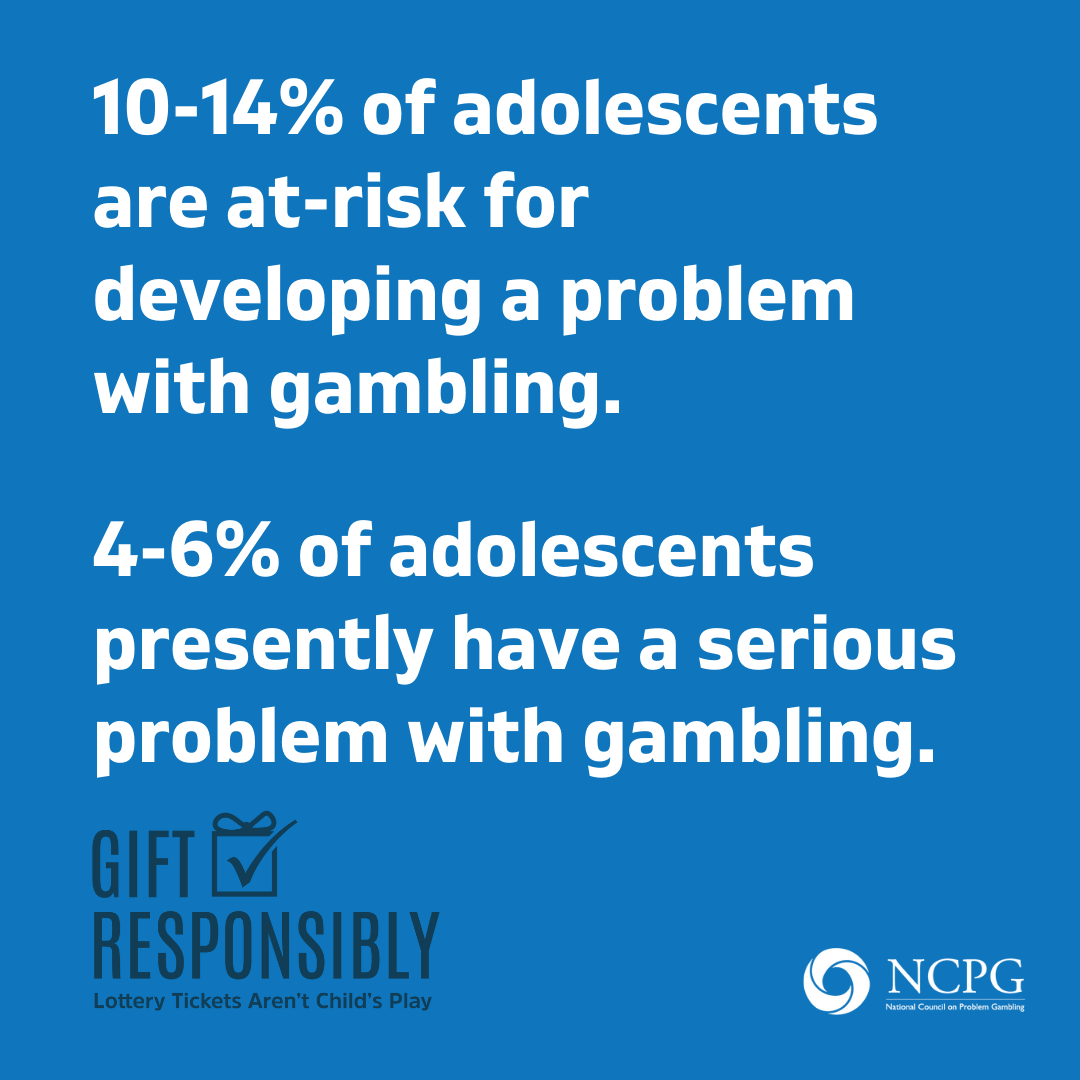#GiftResponsibly: Lottery Tickets Aren’t Child’s Play
This year, if you purchase lottery tickets as gifts, remember they are only for the grownups on your list. Research shows that early childhood gambling experiences, including those with lottery products, can be a risk factor for gambling problems.
Does this come as a surprise? You’re not alone. It’s not uncommon for well-meaning adults to give lottery tickets to children as gifts, but many people don’t know the risks. People with gambling disorder often report that they began gambling by the age of 10, and that an early win increased their desire to gamble. The young brain is susceptible to addiction and youth may move quickly from gambling with friends and family to problem gambling. With increased exposure to gambling advertising and the growing availability of a wide variety of gambling activities, youth problem gambling is a growing public health concern. Even though gambling activities are legally restricted to adults, there is clear evidence that underage youth continue to actively participate in gambling. According to the National Council on Problem Gambling, 4 to 6 percent of adolescents presently have a serious problem with gambling, and 10 to 14 percent of adolescents are at-risk for developing a problem with gambling.
This holiday season, here are some other things you can do to reduce the risk of youth gambling:
- If you or someone you know has a problem with gambling, no matter what the age, help is always available. Call 211, visit 211.org, or text your zip code to 898-211
- Follow AdCare and the Maine Council on Problem Gambling on Facebook and Twitter and share #GiftResponsibly posts with your friends and followers
- Learn more:
The annual Responsible Gifting Campaign began in 2003 to raise awareness about the risks of underage lottery play during the winter holiday season. Each year, the Maine Council on Problem Gambling and Adcare Educational Institute of Maine join the National Council on Problem Gambling (NCPG) and International Centre for Youth Gambling Problems and High-Risk Behaviors in educating the public with the message that lottery tickets aren’t child’s play.

